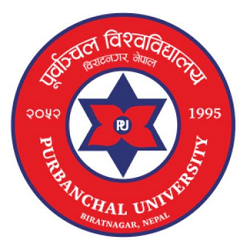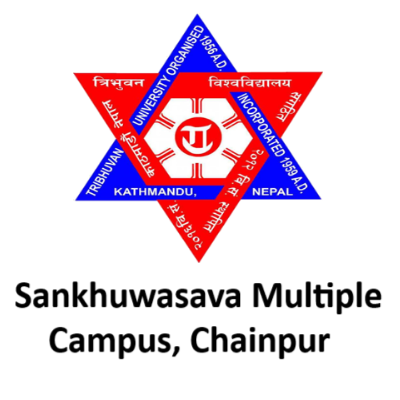Overview
M.Ed at Barun Multiple Campus, Khandbari, Sankhuwasabha
If you plan to grow as a school leader, subject mentor, or teacher educator, the Master of Education (M.Ed) at Barun Multiple Campus (BMC), Khandbari, offers a structured two-year path under Tribhuvan University (TU).
The national M.Ed framework runs for two academic years and includes both professional core courses and specialization courses.
BMC aligns its delivery with TU’s requirements so students study core pedagogy, select a specialization, complete a practicum, and write a thesis before graduation.
Highlights
Here’s the snapshot you might be looking for.
-
Duration: Two academic years (semester system followed at BMC).
-
TU Structure: Core 300 marks; Specialization 550 + Elective 50; Teaching Practice 50; Thesis 50; Total 1000 marks.
-
Attendance: 80% class attendance required for final exams in the semester system.
-
Practicum: Six-week school/college-based practicum near or after second year.
-
Thesis: Specialization-area thesis under faculty supervision with viva voce.
Curriculum Details
Here’s what you’ll study over two years.
The TU-approved structure includes professional core courses (teaching-learning foundations, assessment, research), a specialization block, one elective, a teaching practice, and a thesis.
TU lists multiple specialization domains such as Educational Planning & Management, English Education, Nepali Education, and Health Education, among others. At Barun Multiple Campus, students choose from the locally offered tracks: Nepali Education, English Education, Health Education, and Education Planning & Management (EPM).
Teaching days across the academic year reach around 150, with clear lecture and credit-hour standards; a 3-credit course typically allocates 48 classroom hours in the semester model.
Objectives
This program prepares graduates for roles as teacher educators, educational planners and administrators, system analysts, and subject specialists in schools and higher education.
Scope
Graduates take up roles in secondary and higher secondary education, teacher training centers, local education units, NGOs/INGOs working in education, and further study (M.Phil./PhD) depending on their specialization and research focus. The TU framework supports leadership growth and sector mobility.
Learning Outcomes
Students finish the degree able to plan instruction, lead curriculum processes, analyze educational data, conduct classroom-based research, and mentor peers. Practicum plus thesis reinforces applied skills and academic writing.
Skill Development Modules
You’ll work on instructional planning, classroom observation, school improvement tasks during practicum, and discipline-specific methods.
The thesis strengthens literature review, methodology, data analysis, and reporting quality through formal evaluation.
Teaching Methodology
Expect a mix of lectures, group work, seminars, case analysis, guest sessions, field tasks, and term-paper presentations that build self-learning, problem-solving, and critical thinking.
Admission Requirements
Worried about eligibility or the entrance test?
-
Eligibility: Bachelor’s Degree in Education (B.Ed or equivalent) as per TU rules.
-
Entrance: Semester admission requires passing the TU entrance for the chosen specialization.
-
Attendance: Maintain at least 80% to sit the final exam in the semester system.
Career Opportunities
Not sure where this degree can lead you?
-
Teacher educator or subject lecturer (Education) in campuses and training institutes
-
School leader, education officer, or planner in public and community schools
-
Curriculum developer, assessment officer, or research associate in education projects
-
Specialist roles in EPM, English/Nepali Education, or Health Education per track
Scholarships and Financial Aid
BMC provides merit- and need-based support as per campus policy and current notices. Students from marginalized groups may access equity-focused assistance per institutional rules. (Check the campus notice board or office for current criteria and quotas.)
Why Choose This Course?
Here’s why students at Khandbari choose the M.Ed route.
-
TU-aligned structure with practicum and thesis that carry formal weight in evaluation.
-
Relevant specializations available at BMC: Nepali, English, Health, and EPM.
-
Clear rules on attendance, examination, and graduation for transparent progression.
Conclusion
The M.Ed at Barun Multiple Campus follows Tribhuvan University standards and keeps a tight link between theory, field practice, and research. Students who meet attendance, practicum, and thesis requirements graduate with a recognized master’s degree in education.
FAQ
How long is the M.Ed and what is the study load?
Two academic years under TU. The national structure totals 1000 marks; in the semester system, students complete about 69 credit hours across core, specialization, elective, practicum, and thesis.
Is the practicum compulsory? What does it include?
Yes. Each student completes classroom teaching, an internship, and curriculum evaluation in the chosen specialization over about six weeks. EPM students complete equivalent administrative/management activities in place of classroom teaching.
Do I need to pass an entrance test?
Yes. TU requires an entrance test for semester-based admission into the specialization.



















